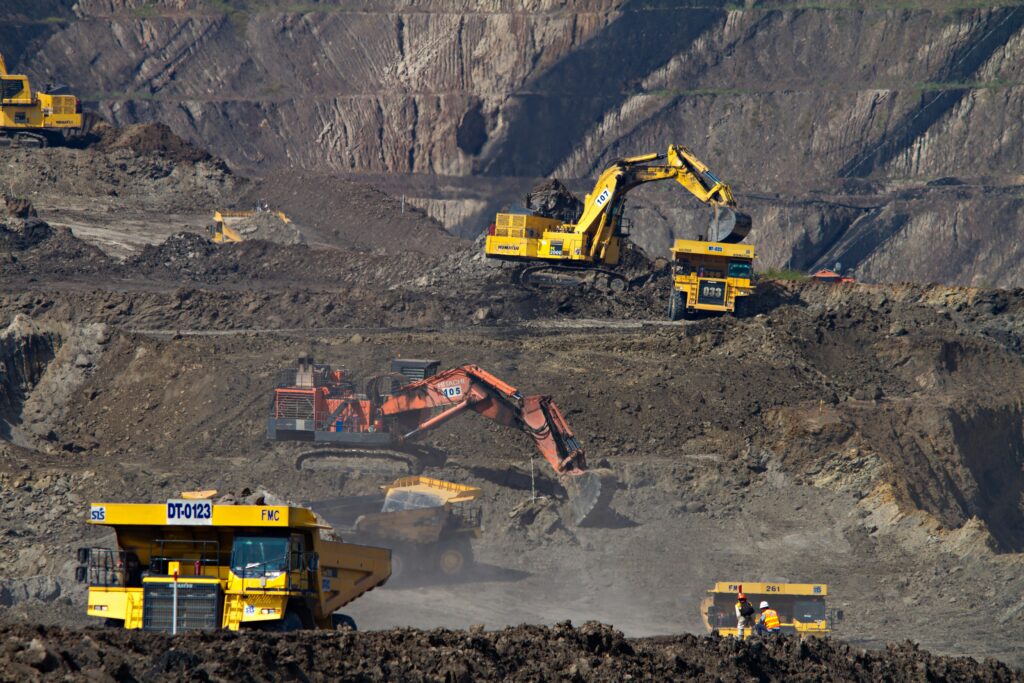
Buoyed by a treasure trove of minerals and surging global demand, Mozambique stands on the precipice of a mining boom. President Filipe Nyuse's recent announcement that the extractive industry raked in over $12.3 billion between 2020 and 2024 underscores this burgeoning sector's potential to transform the nation into a powerhouse within Africa.
"This revenue contribution evidences Mozambique's growing significance to the global mining sector," says Lara Smith, founder and MD of Core Consultants, an independent mining consultancy. "The country boasts a geological bounty, from rubies and emeralds to coal and graphite."
Smith pinpoints Mozambique's provinces like Cabo Delgado, Nampula, Gaza, and Tete as prime examples of this mineral wealth. The recent discovery of new resources, particularly graphite, has ignited a surge in mining activity, attracting significant international investment.
"The electric vehicle industry's explosive growth has driven up demand for graphite, a critical component of lithium-ion batteries," explains Smith. "Mozambique, with its keen eye for opportunity, has been ramping up graphite production, particularly in its mineral-rich northern regions."
Industry players like Syrah Resources, an Australian-listed graphite producer, are pouring millions into processing plants and infrastructure to capitalize on this surge. "Syrah's investment of over $300 million in Mozambique positions them as a long-term player," says Smith. "Their high-grade graphite resources are expected to put Mozambique on the map as a strategic supplier for decades to come."
The future gleams bright for Mozambique's mining sector. Government forecasts predict an 18.6% growth in the extractive industries this year, fueled not only by graphite but also by the increased production of other globally sought-after minerals like tantalum, gold, and coal.
Furthermore, Mozambique's recent inclusion in the Kimberley Process Certification Scheme, a global initiative for ethical diamond trading, opens doors for further diversification of the nation's mineral exports.
"This signifies Mozambique's commitment to not only expanding its mining capabilities but also aligning with global environmental standards," says Smith. The government's focus on climate change policies and participation in discussions about sustainable development showcases this dedication."
However, Smith warns of potential roadblocks on Mozambique's mining journey. The nation's dependence on foreign investment presents a vulnerability. "Continued political stability and mitigating the ongoing terrorist threat are crucial for Mozambique to fully capitalize on its vast offshore potential," she cautions.
Since 2017, the Islamist extremist group Al-Shabaab has wreaked havoc in northern Mozambique, displacing hundreds of thousands of people and disrupting crucial natural gas projects. This insurgency has also impacted mining operations, with Syrah Resources being forced to suspend logistics activities due to terrorist attacks.
"The rise of ISIS in Mozambique, attracting foreign fighters from across the region, further complicates the security situation," says Smith. "While these incursions are currently concentrated in the north, the humanitarian cost is immense, with Save the Children reporting over half a million people displaced."
Despite these challenges, Smith remains optimistic about Mozambique's mining future. The country's projected record production of tantalum and gold this year signifies a sustained growth trajectory that fuels economic development.
Mozambique's rich endowment also positions it as a potential frontrunner in the green energy revolution. The country's graphite resources can contribute significantly to the electric vehicle market, while its hydropower potential paves the way for green hydrogen production.
"The integration of Mozambique's mining sector with these broader economic and environmental goals suggests a promising future," concludes Smith. "The nation is poised to become a remarkable mining destination in Africa, but navigating the security challenges that currently cloud its path will be essential for achieving its full potential."
Beyond the immediate economic benefits, a thriving mining sector can empower local communities. Skill development programs and infrastructure investments can create a ripple effect, fostering socio-economic progress across the nation. However, ensuring ethical practices and environmental sustainability are paramount for long-term success. Mozambique must strike a delicate balance between reaping the rewards of its mineral wealth and safeguarding its people and environment for generations to come.
